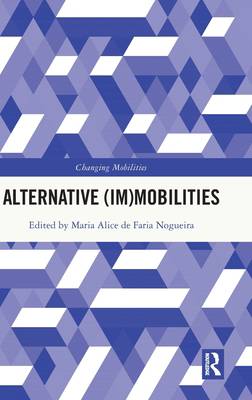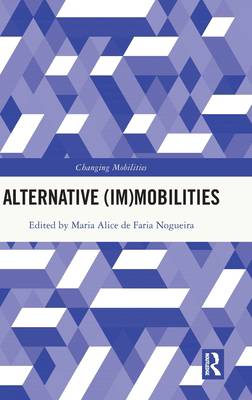
- Retrait gratuit dans votre magasin Club
- 7.000.000 titres dans notre catalogue
- Payer en toute sécurité
- Toujours un magasin près de chez vous
- Retrait gratuit dans votre magasin Club
- 7.000.0000 titres dans notre catalogue
- Payer en toute sécurité
- Toujours un magasin près de chez vous
Description
By introducing the new concept of alternative (im)mobilities, this collection draws attention to a different approach to mobility practices. In doing so, this ground-breaking volume explores a range of issues related related to (im)mobilities and the Covid-19 pandemic, transport and social practices, and media and urban tourism.
Designed and organized in a legally or illegally way, alternative (im)mobilities are examples of those daily practices of displacement of people, objects, and information, which mobilize a multidisciplinary framework of urbanization, shedding light on important and long-standing issues of inequality and the lack of recognition of diversity in economics, social and culture urban life. This volume opens up a new set of research questions related to the complex ways in which informal actors cope with their everyday life experience, regarding dwelling, commuting, working, caring of vulnerable people, health issues, access to information, among other mobility practices, besides the lack of essential - and infrastructural - public services.
This volume will be of great interest to researchers and scholars in geography and the social sciences interested in mobilities, transport, communication, tourism, mobility justice and inequality, public decision making and health studies.
Spécifications
Parties prenantes
- Editeur:
Contenu
- Nombre de pages :
- 200
- Langue:
- Anglais
- Collection :
Caractéristiques
- EAN:
- 9781032124292
- Date de parution :
- 27-07-22
- Format:
- Livre relié
- Format numérique:
- Genaaid
- Dimensions :
- 156 mm x 234 mm
- Poids :
- 430 g

Les avis
Nous publions uniquement les avis qui respectent les conditions requises. Consultez nos conditions pour les avis.





